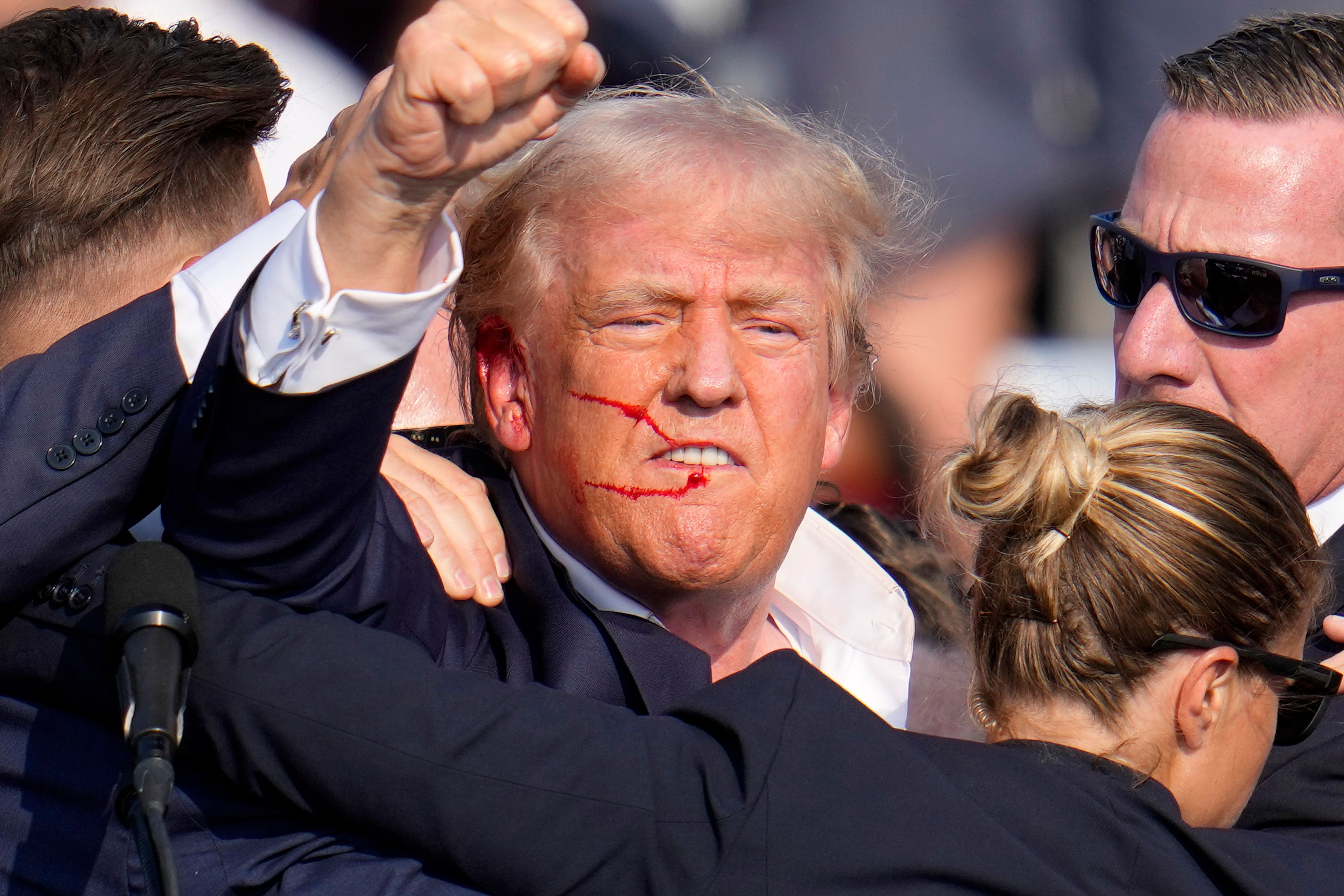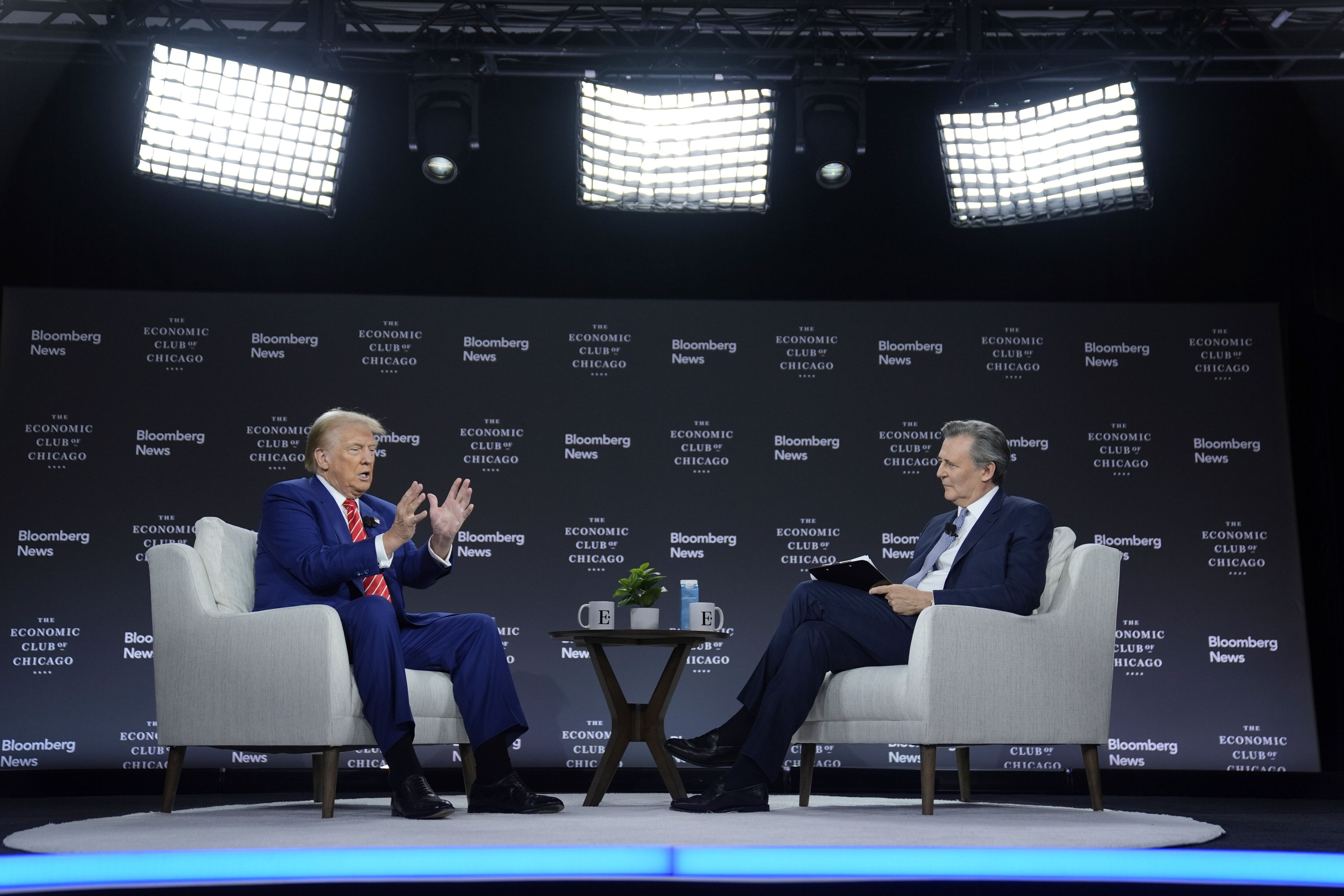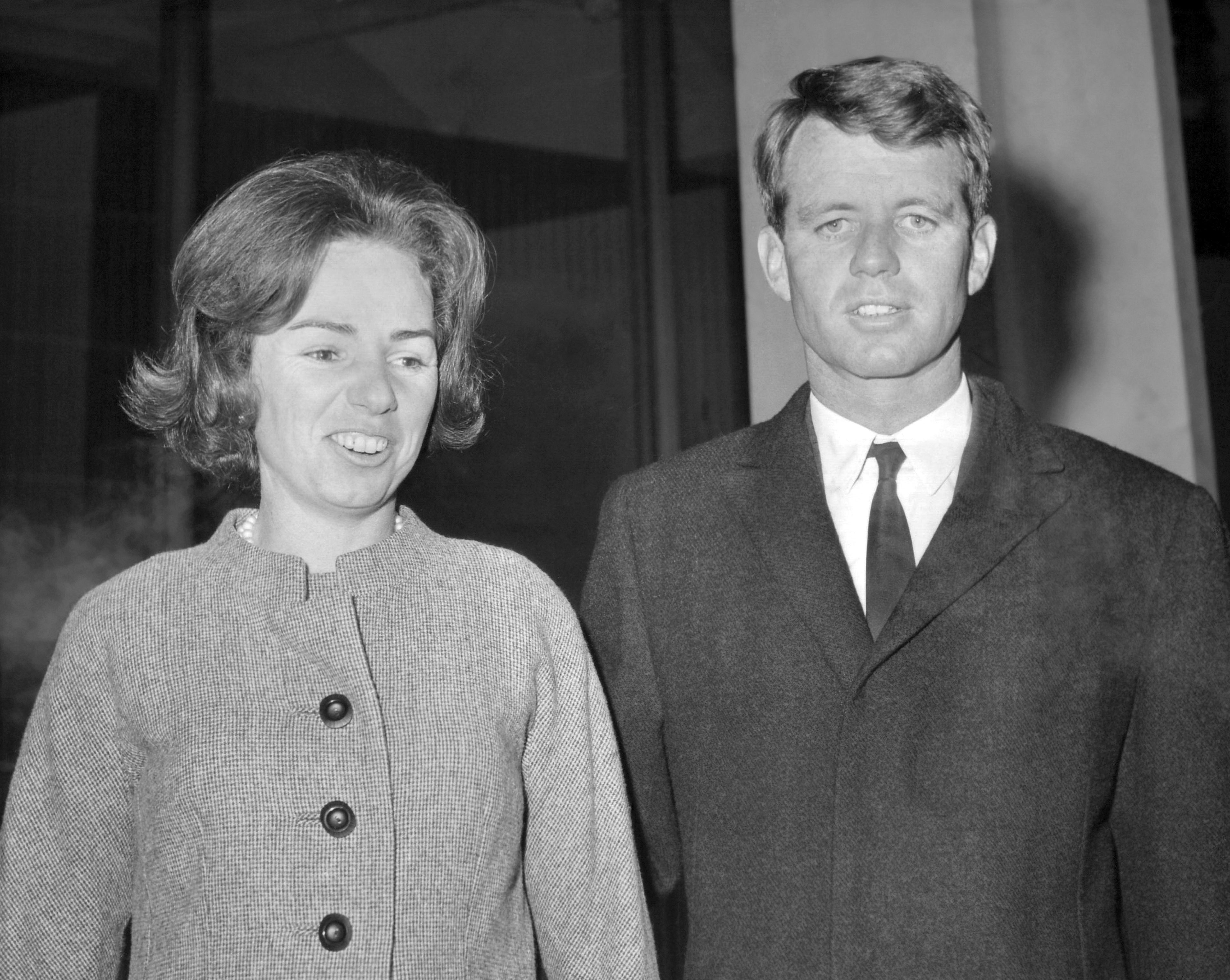FRANK CHURCH; Ten years after his death, his profile continues to grow
Frank Church died April 7, 1984, at age 59 of pancreatic cancer.
BOISE, Idaho (AP) Not since Ernest Hemingway had the death of an Idaho public figure caused such public mourning.
Crowds packed cathedrals in Idaho and the nation's capital. A month earlier, Congress had given
his name to the largest wilderness area in the contiguous states.
Among the bedside visit
ors to his Maryland home during the final days was Massachusetts Sen. Edward Kennedy. An observer noted tha
t it was only time he had seen a Kennedy cry.
National figures as opposite as George McGovern and Barry Goldwater
mourned the passing of a life of rare achievement:
At 16, he was the U.S. high school oratorical champion.
At 32, he was the fourth youngest person ever elected to the U.S. Senate.
At 33, he was a key to passing the nation's first civil rights legislation in nearly a century.
At 51, with a late start and meager finances, he upset Jimmy Carter in four straight presidential primaries.
At 59 10 years ago it was over.
They buried him at Morris Hill Cemetery. The most moving words on his headstone are his own:
''I never knew a man who felt self important in the morning after spending the night in the open on an Idaho mountainside under a star-studded summer sky. Save some time in your lives for the outdoors, where you can be a witness to the wonder of God.''
Frank Church came to rest two miles from where he was born. Along the way, he captured the attention of the world.
From his law office on the eleventh floor of Boise's Key Bank tower, Carl Burke looks down on the boyhood world of his lifelong friend:
''There's Frank's house, nestled up by the Presbyterian Church on Franklin. His dad's sporting goods store was right down there, on Eighth
across from the post office. ... The Yen Ching was a place called Watson's then. We bought banana splits there for a dime.''
Church was a Boise High School junior when he won the national high school oratorical championship from a field of 108,000. In his senior year, he was student body president.
''He was enormously bright,'' Burke recalled. ''He had a delicious sense of humor and was a natural leader.''
The friends were all but inseparable. Burke recalls incidents of youthful mischief (sneaking into the Egyptian Theater on a rickety fire-escape ladder, tricking teachers with a ''hypnotism'' show) as well as more serious pursuits. They were ROTC captains together, worked on a surveying crew, sold clothes at Montgomery Ward's.
By then, Church was seeing the governor's daughter, Bethine Clark.
''I met him at a student government convention,'' she said. ''I think I always thought he was something special. It was that way from the beginning.''
Church spent a semester at Stanford before joining the army in 1942. He returned home in 1946 after serving as an intelligence officer and married Bethine the following year.
In 1949, his life changed profoundly. He was 24, a new father, a Stanford law student.
And he had cancer.
''It influenced everything,'' Bethine recalled. ''I was always a go-for-broker ... and it made Frank believe the only way to live was by taking great chances.''
Th
e first chance was a series of experimental X-ray treatments. Church's doctors had given him only a few months to live, and at times the treatments seemed to be killing him. Bethine recalled that his skin was ''burnt raw'' and his weight fell to less than 100 pounds.
The gamble worked. By 1950, he was cancer-free and practicing law
in Boise. Six years later, he took the biggest political risk of his young life. At 32, never having held elective office and warned that victory was impossible, he ran for the U.S. Senate.
To finance the campaign, the Churches sold their home. They campaigned for nine months, often going door to door. Frank typed speeches and press releases in the back seat of their Kaiser while Bethine drove from town to town.
Defying the odds, he defeated a well-known primary opponent and shattering the odds overwhelmed the favore
d Republican candidate in November. The ''unknown'' went for broke and won, with nearly 60 percent of the vote.
Church looked even younger than he was. In Washington, he sometimes was mistaken for a Senate page boy. Magazines published flattering stories about the ''boy senator,'' and his oratorical skills and thoughtful approach to legislation won the respect of his colleagues, including then-Majority Leader Lyndon Johnson:
''Frank I told Drew Pearson yesterday I wanted him to help me give you a building up over the years that would give you the recognition your abilities deserve someday you can, may and should be our President. LBJ.''
Bethine recalls Sen. Barry Goldwater, a Repub
lican who disagreed with Church about nearly everything, calling her husband's office to warn him of pending diatribes:
''He'd say, 'Frank, I'm going out on the floor to give you a lambasting. Come on over and protect yourself.'''
Products of a gentlemanly political era, the two remained personal friends. Three decades later, Goldwater remembered the Churches as ''two of the favorites I had in that land of Oz.''
Church's first year in ''Oz'' foreshadowed his later reputation as both a senator for Idaho and for the nation. The bulk of his time was divided between Hells Canyon Dam legislation and the 1957 Civil Rights Act.
The Hells Canyon Dam bill called for one large government dam instead of three smaller private dams in Hells Canyon. Church prevailed in the Senate, but the bill was overturned in the Ho
use. The Civil Rights Act established the Commission on Civil Rights, to investigate violations, and created a civil rights enforcement division within the Justice Department.
In both cases, Church's ability to arrive at politically acceptable compromises was a key to passage. It also evoked criticism from those who thought he was too willing to compromise.
Another criticism, one that follo
wed him throughout his career, was that his interest in national legislation caused him to lose touch with his Idaho constituency.
An effort to stay in touch was a series of courthouse meetings, in which Idahoans were invited to visit their county courthouses and meet their senator. It was hard to claim he was losing touch with the folks back home when they'd just visited with him at their courthouse.
Also not lost on the folks back home were the advantages of Church's national connections. Bryce Nelson, a University of Southern California professor and a member of Church's staff in the '50s and '60s, remembers being at the Churches' home one morning when the phone rang during breakfast:
''It was President Kennedy, calling about some kind of mixed-grains amendment. I think it was only farmers in the Magic Valley who were concerned about it, but he had asked the president to include it in a bill.
''Kennedy said, 'Frank, if I put this in the bill, will those farmers vote for me?' Church said, 'No, Mr. President, I can't say they will. But if you don't, they definitely won't vote for me.'''
The farmers got their amendment.
Relations with Kennedy's successor were less congenial. Church had angered Johnson by breaking party ranks when they served in the Senate together, and his independence regarding the Vietnam War infuriated Johnson as president.
Former Senate Majority Leader Mike Mansfield, now 91, described Church as being ''most vigorous in his opposition to the Vietnam war, and he had no hesitation in making his views known'' Church was one of the first ''Senate doves'' to oppose the war as well as a president of his own party.
''He took a lead position on the initiatives that would limit the war,'' said Orval Hansen, a Republican Idaho congressman from 1968 to 1974. ''He represented an ideology I may have disagreed with, but it was a strength to stick with it, and he always did. When he opposed Lyndon Johnson, that took a lot of courage.''
The ''initiatives'' were the Cooper-Church amendments, limiting U.S. involvement. Church's opposition increased during the administration of President Richard Nixon, who considered the amendments a personal affront.
Church and Nixon detested each other. Martin Peterson, assistant to the president of the University of Idaho and a former Church aide, remembers being told to expunge the name of a Nixon associate from a mailing list for Church's speeches:
''He asked me who it was, and I told him it was
a new guy at the Nixon White House,'' Peterson said. ''He said to cross it off. I did, and Henry Kissinger didn't get a copy of the speech.''
In the battle over the amendments, it was Church who prevailed. With their passage, Nixon became the first U.S. president limited by Congress to deploy troops during a w
ar.
''I think the amendments helped present a climate that allowed us to get out (of Vietnam),'' Nelson said. ''It wasn't popular to speak out against the war in those early years, and there was no reason to think people in I
daho would be for it. When he spoke up, he felt he was risking his Senate career.''
Church risked his career over more than Vietnam. A cause he supported that was anything but popular in conservative Idaho was that of wilderness preservation.
He was instrumental in passage of the 1964 Wilderness Act, which gave government the authority to establish wilderness areas. He also introduced the 1965 National Wild Rivers Bill, protecting sections of the nation's most scenic rivers (including the Clearwater and Salmon in Idaho) from development. Church countered development arguments with claims for the economic benefits of tourism.
When a New York company proposed an open-pit mine in the White Cloud mountains of central Idaho, Church introduced legislation to create a Sawtooth-White Cloud national park and recreation area. One of his strongest allies in the battle to protect the White Clouds was Cecil Andrus, who rode the issue to th
e Statehouse as Idaho's first Democratic governor in 24 years.
''There is no question that Frank Church's legacy at the state level has to be the wilderness legislation of 1964 and protection of the old primitive area, which we now call the Frank Church River of No Return Area,'' Andrus said. ''There is no larger single issue than that.
''He wasn't one that used the outdoors, but he was always comfortable there,'' Andrus said. ''He understood the value of it to all people and thought a lot harder about it than those who use it and abuse it. He was not a consumer, but he was a great protector.''
Church's mind was on more than the outdoors in the early '70s. As chair of the Senate Subcommittee on Multinational Corporations and the Senate Select Committee on Intelligence Committees, he headed investigations that shocked the world.
The committees found that U.S. corporations had bribed government officials in foreign countries, that the CIA had investigated Vietnam war protestors and that the agency had
plotted to overthrow foreign governments and, in some cases, murder their heads of state.
The investigations made Church's name a household word. They also led to criticism that he had jeopardized national interests, threatened national security and seriously weakened the intelligence community. His response was that national security did not justify immoral acts.
Rocketed to national prominence by his investigative efforts and outraged by abuses of power during the Nixon administration, Church in 1976 ran for president himself.
It was a day when Idahoans tended to set aside politica
l differences. The late Sen. Len Jordan, a Republican often opposed to Church's views, told him he was ''proud of you and the good image you and Bethine always project for Idahoans and the nation.''
Church ran on a theme of making government honest again and returning power to the people. Because of his commitments to his intelligence committee, his announcement was delayed until March. By then, Georgia Gov. Jimmy Carter already had eliminated several opponents.
Determined to make the best of the situation, Church joked about his ''late, late strategy.'' He traveled in an airplane nicknamed ''the turtle,'' wore turtle ties. In Nebraska, he stunned Carter by finishing first. He also won in Oregon, Montana and Idaho before the Carter delegate lead became insurmountable.
Idaho Rep. Larry LaRocco, then a Church assistant, laughs about the time the turtle plane broke down and Church was late for a speech in Oregon. One of LaRocco's responsibilities was to find a ''holding room'' for the senator to prepare to go on stage. The only one available was a men's room.
Puzzled, Church asked why he had been brought to a bathroom. LaRocco stammered that he thought the senator might need to use the men's room after flying in from Montana.
''He grabbed my lapels and said, 'Listen, LaRocco, Bethine can tell me when to go to the bathroom, but you can't.' Then he walked on stage and gave a major address.''
''I think he would have made an excellent pr
esident,'' Mansfield said. ''He was careful,
cautious and deliberate in arriving at decisions after studying the issues carefully.''
Although he was a fellow Democrat, Church, Andrus recalled, ''was not always the first one invited to a party at the White House.'' Carter was cool toward his former primary opponent throughout his presidency, and Church's efforts on behalf of the administration hurt him politically in Idaho.
One favor was a trip to Cuba Carter urged him to take in 1977. Church succeeded in persuading Fidel Castro to release the families of nearly 100 Americans, but the fact was lost amid charges that he had been too friendly to a Communist leader.
Church also led the Senate floor fight for the administration's
Panama Canal Treaty despite warnings that it constituted political suicide. Public opinion in Idaho was solidly against the treaty, widely viewed as a ''giveaway'' of ''our canal.''
Some saw Church as a traitor. Others, such as Pulitzer prize-winning author and public-television commentator David McCullough, thought him a hero:
''Frank was one of the finest, most admirable men in public life in our generation and certainly among the best I've ever known personally. His courage, his eloquence and stamina through the Panama controversy were absolutely extraordinary; I'll never forget it. ... I'm quit
e sure there would have been no treaties without Frank and his leadership and imagine what the situation in Panama might be right now, given the state of things in Central America, if the treaties had failed to pass.''
Many including Church himself believed his defense of the treaty would cost him his job.
''He said his string had run out the CIA and the multinationals topped off by the Panama Canal,'' Bethine said. ''Teddy Roosevelt (the ''father'' of the canal) was an Idaho hero.''
The string had included four successful election bids for a total of 24 years in the Senate. No other Idaho Democrat had been elected more than once.
How did he do it?
''One
of his greatest assets was he understood I
daho and the West, yet had the respect of the eastern political establishment,'' said Boise City Councilman and former Church assistant Mike Wetherell. ''That allowed him to get through legislation like a restriction on inter-basin water transfer studies when California had its eye on Idaho's water. That got a lot of votes.''
Many cite Church's independence defying Democratic presidents, supporting controversial bills, leading unpopular fights as appealing to Idahoans' tradition of western independence. Church's campaign ads stressed his independence, which Andrus says was ''enhanced'' by his stands on controversial issues such as wilderness preservation.
His personal life also appealed to Idaho voters.
''He was squeaky clean,'' said Idaho Supreme Court Justice and former congressional candidate Byron Johnson. ''He and Bethine were inseparable, and his children were closer than his heartbeat to him.''
Wetherell adds that ''at base he was a very moral man.
... In 10 years of working with him, I probably only heard him swear three times.''
His constituent service bordered on the legendary. Aides say he insisted that every piece of mail be answered, every problem be addressed.
Church was popular with the elderl
y, many of whom revered him. He and Bethine regularly visited nursing homes, winning friends and votes. As chairman of the Senate Special Committee on Aging, he sponsored legislation providing automatic cost-of-living increases for Social Security recipients and promoted barrier-free environments through the Americans With Disabilities Act.
William Oriol, the committee's staff director, remembers Church's driving home a point by attempting to negotiate the nation's capitol in a wheelchair. The building subsequently became wheelchair-accessible.
Church's last two years in office were bittersweet.
In 1979, he realized his boyhood dream of becoming chairman of the Senate Foreign Relations Committee. By then, however, he rightly sensed the end. The risk-taking of the past, a conservative rebe
llion and a well
-financed,
hard-hitting campaign by Republican Congressman Steve Symms were too much to overcome.
Despite Ronald Reagan's long coattails and Carter's conceding defeat before the polls closed in Idaho, Church lost by less than 1 percent of the vote.
Some say Idaho is still waiting for another Frank Church.
''There are still giants, but today they're more media stars,'' LaRocco said. ''It's a faster-paced world. ... Everybody's into instant everything.''
Bethine Church agreed:
''Frank loved to read and think in depth. Maybe what we're lacking today is the time to do as much of that.''
Church spent his last years writing, lecturing and practicing international law before succumbing to cancer his old enemy on April 7, 1984.
His legacy survives.
''One of the curiosities of getting on in years in Idaho,'' Byron Johnson reflected, ''is that younger people say 'Gee, you knew Frank Church!' It never occurred to me that would be something I'd be elevated for, but the inspiration he has been and will be to young people continues.
''His image will grow so we can't even anticipate how the next generation will view him. In the perspective of another generation or two, he and
Borah will be side by side.''








